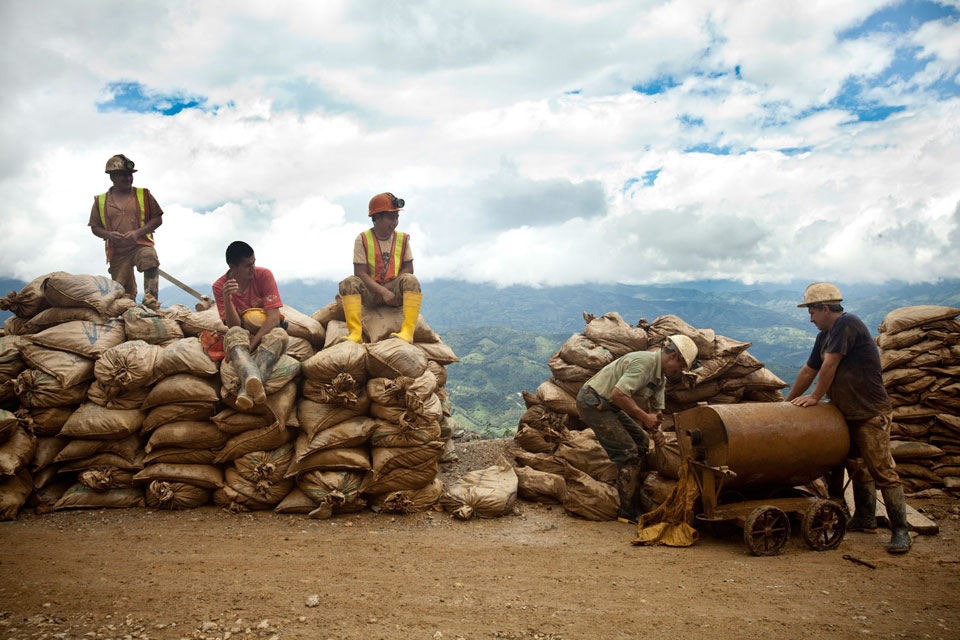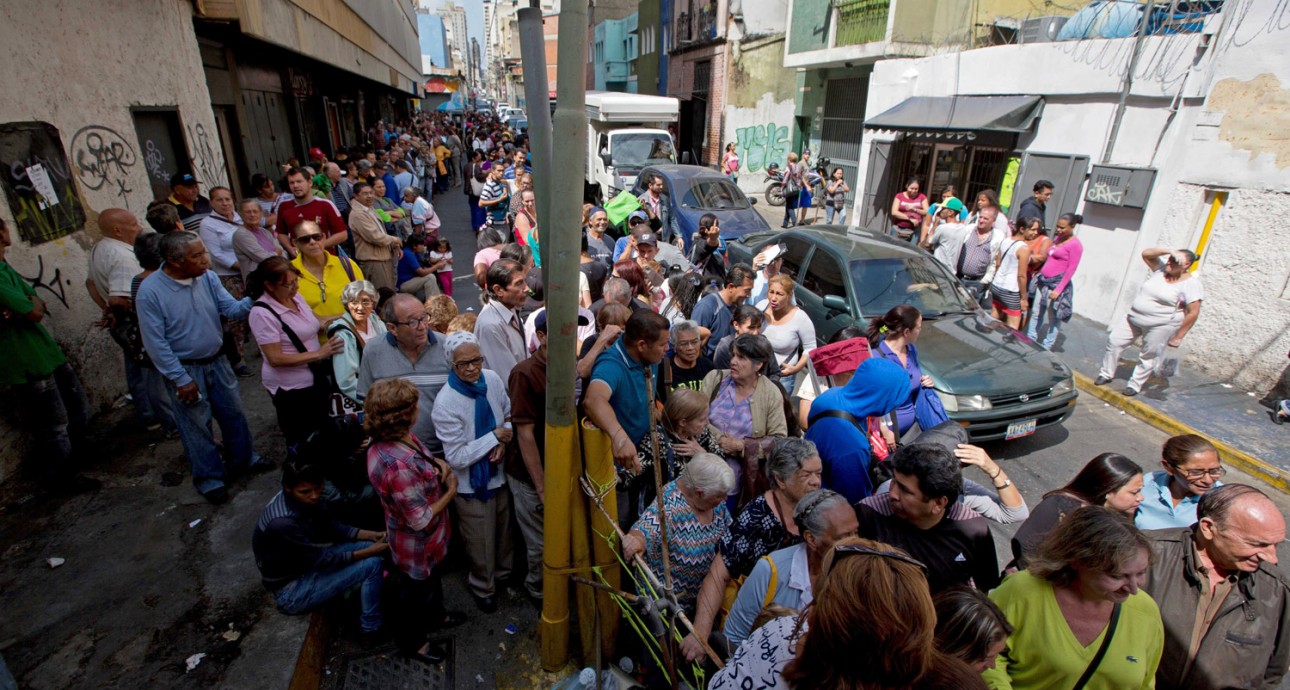
Greatly Indebted: How Venezuela Became the Most Miserable Country in the World
Being consistently atop the list of the unhappiest countries in the world since 2013 is the only stable tendency in Venezuela’s economy. When in early 2016 Bloomberg used the economist Arthur Okun’s formula, and added the inflation rate to unemployment rate in 63 countries, thus making prognosis for the future anti-rating, the difference between Venezuela (1st place) and Argentina (2nd place) was fourfold: 159.7 points versus 39.9. Any country would have to try really hard to catch up with Venezuela.
Figures find convincing proof in stories. In January 2015, Business Insider wrote about long queues to state-owned food stores with fixed prices, where people would queue for six days, while mentally preparing themselves to see empty shelves. That was about the time when they ran out of French fries at McDonald’s and started serving roasted pieces of yucca roots. And several months later a picture of a stuffed pied wrapped into a one bolívar note received thousands of comments on Reddit — it would have been more expensive to wrap it in a napkin.
Under such circumstances, everything is in demand on the black market: from food to toilet paper.
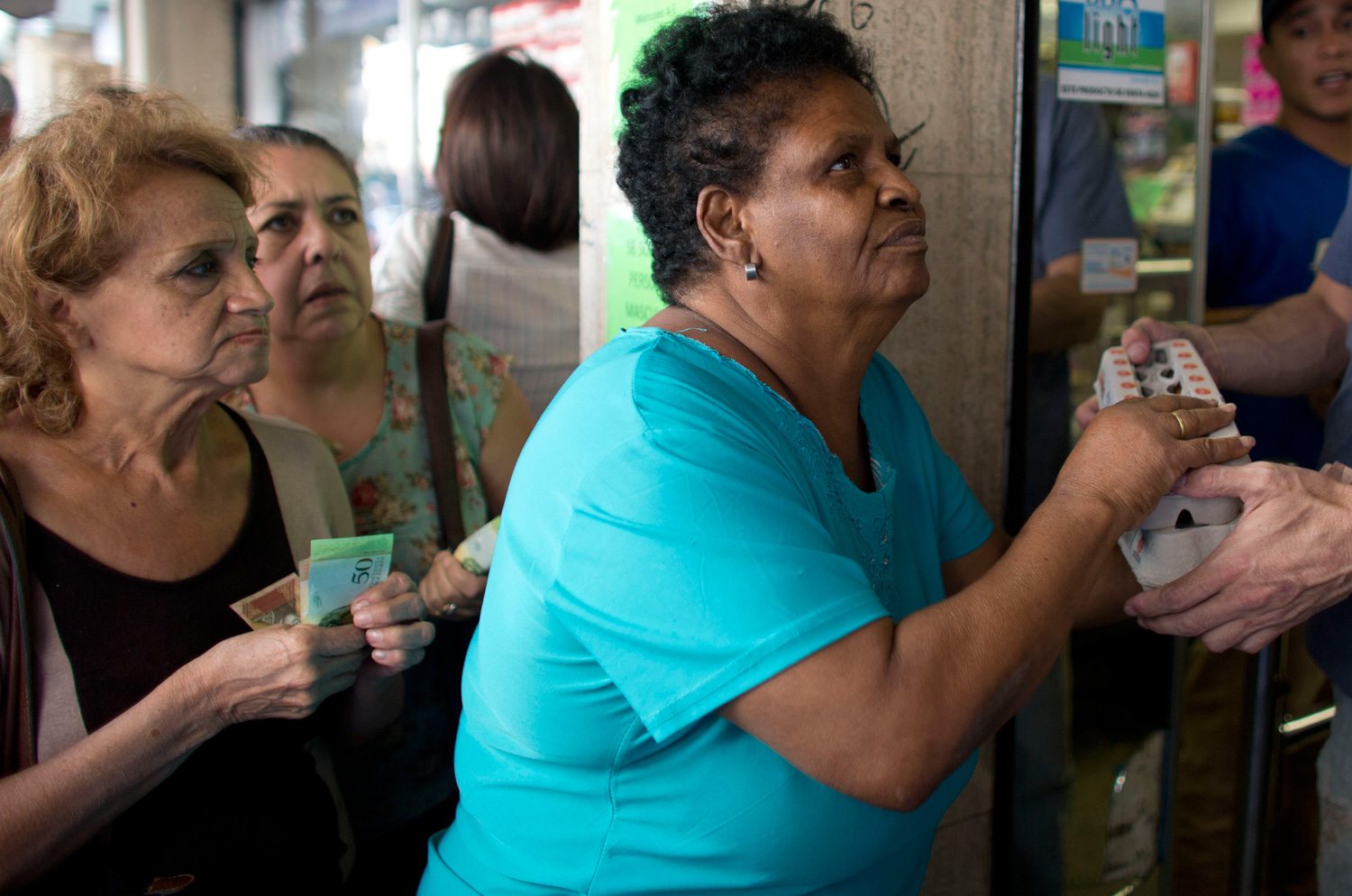
The country lacks not only food and manufactured goods, but also medicine: according to CodeVida, the Coalition of Organizations for the rights to health and to life, the country currently has 30% of the supply of the most necessary medication, patients with chronic illnesses have 20% of the medication they need. The minister of health care explains the deficit with “irrational consumption” — in other words, that it is the fault of the people that they buy too much medication. Food Minister Yván José Bello Rojas expressed a similar view of the situation, when from a journalist he heard a story of a woman who tried and failed to buy diapers for several days.
The crisis in Venezuela started long before the global collapse of oil prices, but the authorities still try to blame it for everything, and are not quick to acknowledge their own mistakes. What made Venezuela a leader in the rating of the unhappiest countries? We drew up a list of the most likely reasons.
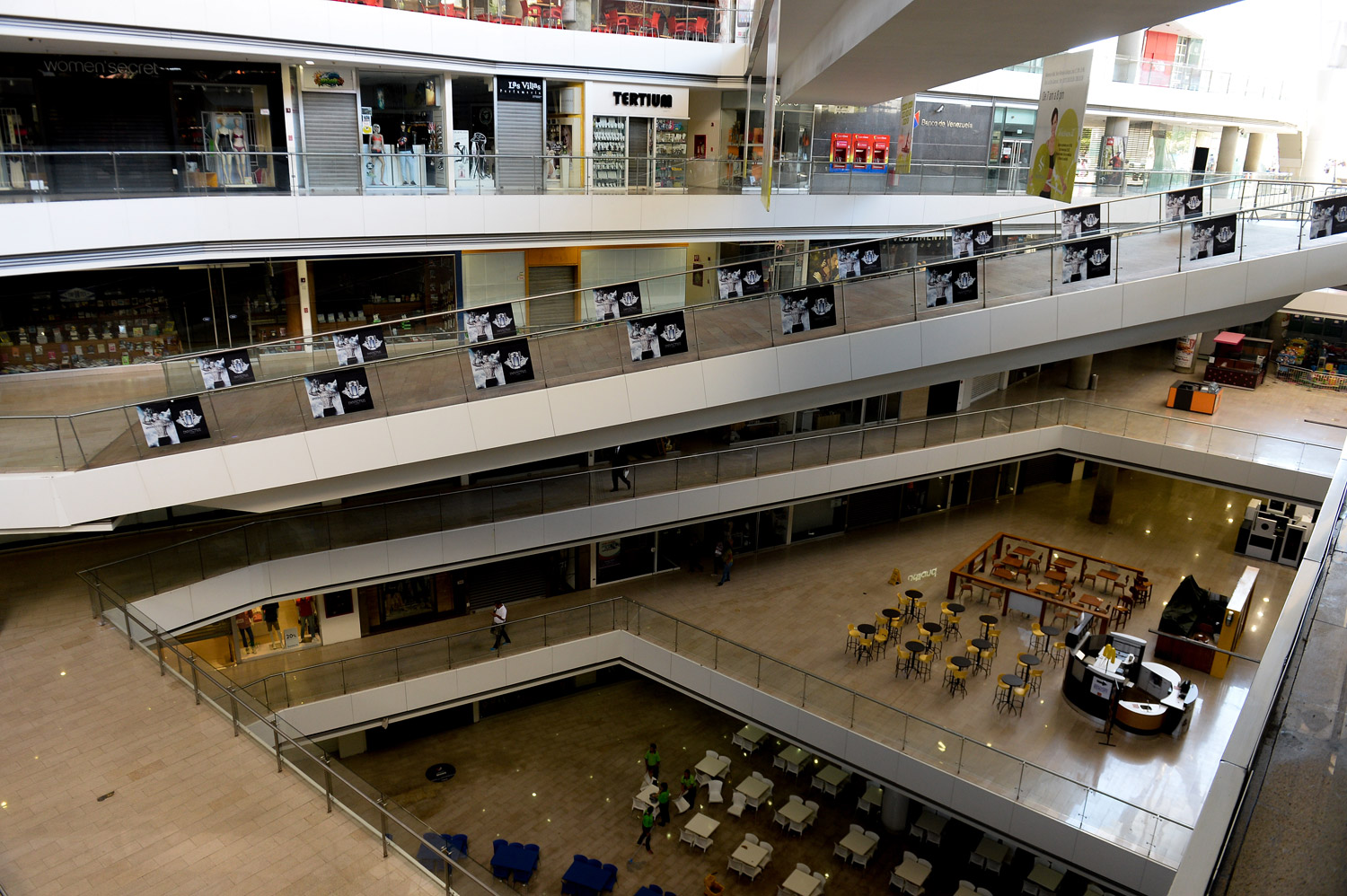
Too Much Oil
Oil is 95% of the country’s exports. The prices that fell from $110 per barrel in 2014 to $30 in 2016 have aggravated the state of the economy, but have hardly been the cause of the crisis. The problem is more complex than that. The oil fields that were discovered in Venezuela in the early 20th century were actively developed by international companies till the 1970s, when the authorities informed the foreigners that the period of their concessions for extracting Venezuelan oil would expire in 1983. The investment rapidly dropped, which led to a decrease in extracted volumes of oil and the income of the state. After the world prices for oil dropped in the 1980s Venezuela could forget about its former prosperity. The country which was considered the richest in Latin America thirty years earlier started losing its status.
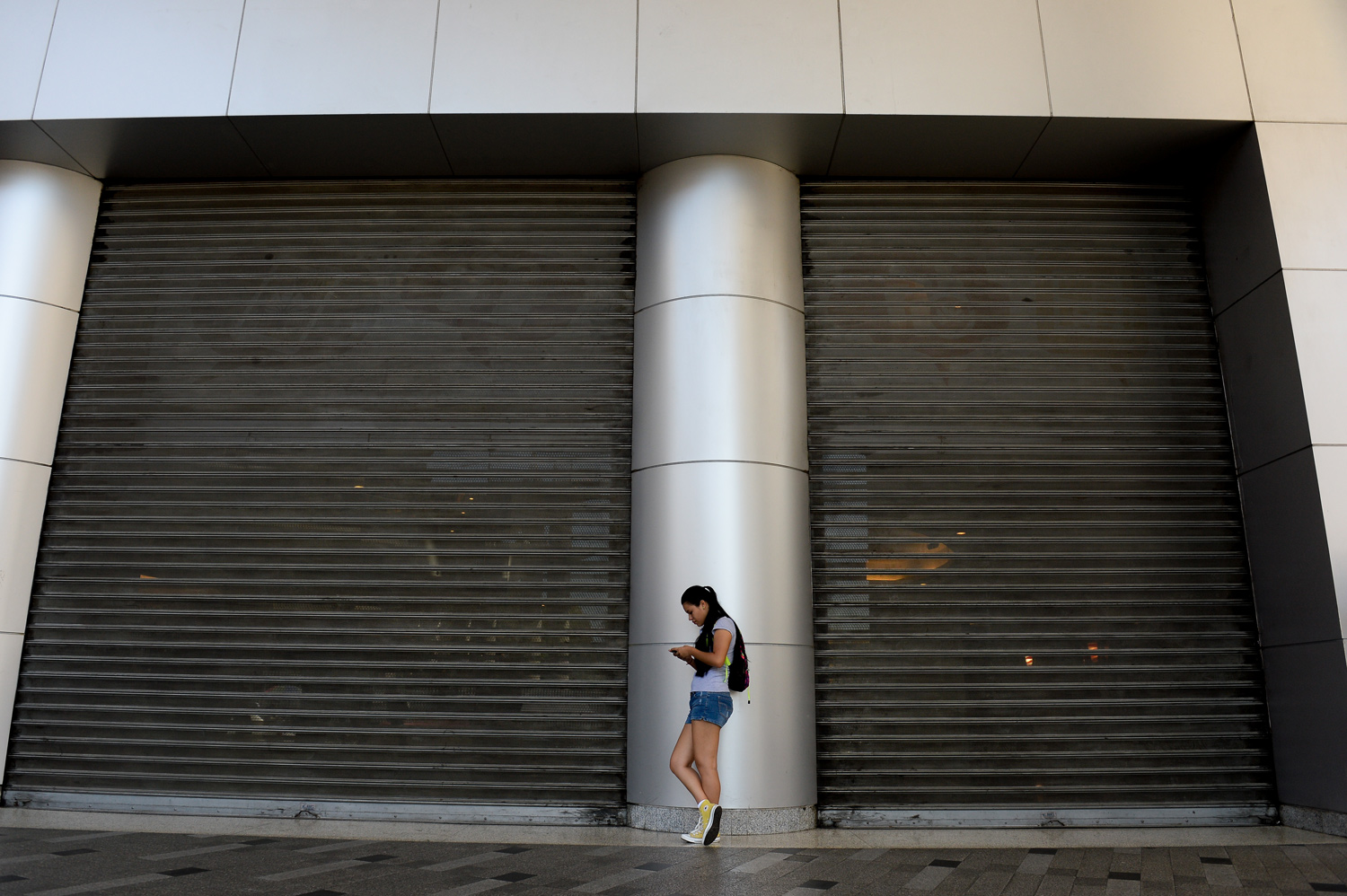
Too Much Ambition
The permanent leader of the country for 14 years (1999-2013) who died in office, President Hugo Chávez attained power at the moment when the population was very unhappy with the old government. The things Chávez promised during his election campaign were exactly what the impoverished people wanted. In fighting poverty, the bet was made not on developing businesses, but on oil, again. Luckily, the prices started going up, so there was no need to change this plan.
Instead, Chávez rewrote the Constitution and several laws, increasing the role of the state in economics and his own role in ruling the country. Many big production facilities were nationalized, but subsidizing national companies was taking its toll on the country’s budget. During recent years, under the new president, Nicolás Maduro, when oil was no longer generating that much income, crediting PDVSA, state oil and gas company, by the National Bank has contributed to inflation a lot. According to the International Monetary Fund, it was 150% in 2015.
Too Many Banknotes That Cost Nothing
There was no room for business to develop, and after a failed attempt to get rid of Chavez during the coup in 2002, qualified professionals started leaving the country. The capital followed. In an attempt to stop this process, officials in Caracas introduced an exchange control regime in 2003. As a result, business turned to grey schemes — overstating the cost of import or understating the cost of export, and the companies continued to keep their income abroad.
In addition to two fixed exchange rates for exporting and importing companies, in 2005, the authorities banned selling US dollars to individuals. This led to the blossoming of the black exchange market, with the official exchange rate of 6.3 bolívar for $1, and the black market rate at 1000 bolívar for $1. The ban was lifted after 10 years, in 2015, and only partially: individuals can purchase only a limited amount of dollars at a fixed price.
Money costs almost nothing here, but it is expensive to manufacture — banknotes get into the country on cargo planes, after it is printed abroad by private companies: there is not enough paper in the country.
At the end of 2015, the government started negotiations to order 10 bln more banknotes, in addition to those 5 bln already printed several months before that. This is more than US Federal Reserve System prints annually.
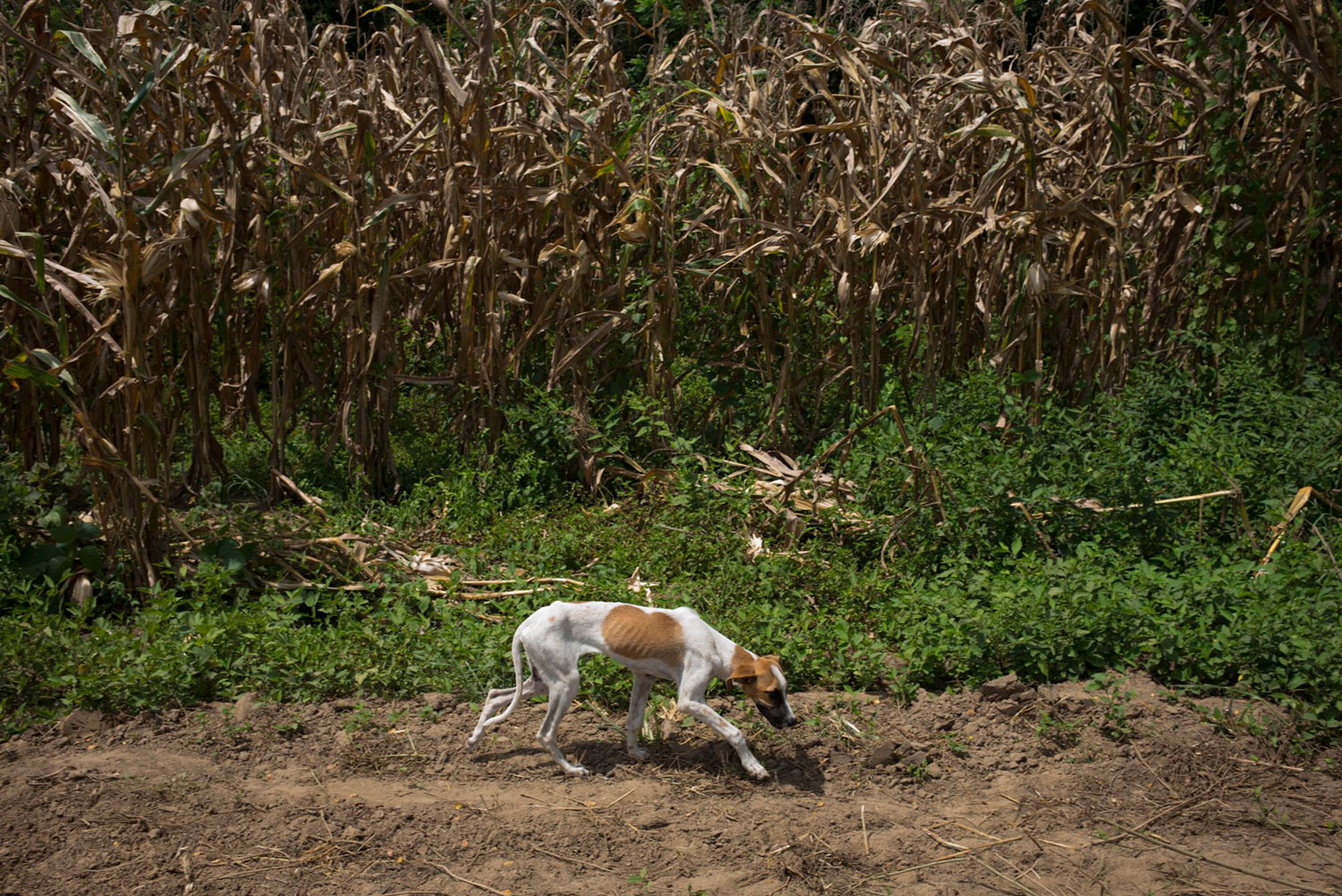
With more and more economic problems, the crime rate and narcotrafficking are also rising. Hugo Chávez, who was against any intervention from the capitalist North, drove the US Drug Enforcement Agency out of the country in 2005. But this did not make life better. Corruption in the country is legendary, narcotraffic is said to be controlled by the top members of the United Socialist Party (the ruling party in 2007-2015) and the generals, but of course, they are not held responsible for this. There is in fact nobody who could hold them responsible — the power is usually in the same hands as the drugs, and prisons are reserved for the opposition. The idea of 21st century socialism in one separate country of Venezuela surrendered to the temptation of unlimited power.
New and best
